Managing Your Health During A Pandemic
 Even if you worked relentlessly on staying fit for years, you were probably more focused on good health since the pandemic started. Everyone will agree that managing your health during a pandemic is extremely important, but staying healthy at all times should also be at the top of your “must do” list. At Iron Fit in San Antonio, TX, we can help you with that and provide information you need, plus workouts that will help you shed pounds and look your fittest.
Even if you worked relentlessly on staying fit for years, you were probably more focused on good health since the pandemic started. Everyone will agree that managing your health during a pandemic is extremely important, but staying healthy at all times should also be at the top of your “must do” list. At Iron Fit in San Antonio, TX, we can help you with that and provide information you need, plus workouts that will help you shed pounds and look your fittest.
Obesity is the leading cause of preventable deaths.
Not only does obesity increase your risk of serious conditions like heart disease, diabetes, stroke, and certain types of cancer. New studies show that obesity can also increase your risk of developing Covid-19. If you’re obese are 48% more likely to die of Covid-19, 74% more likely to require intensive care and 113% more likely to be hospitalized. One of the theories why this happens is from inactivity and poor diet, but others think the actual fat cells may be part of the problem. When your immune system is working correctly, it creates inflammation that helps the body fight an invader. Too many fat cells can also cause inflammation. Not only is the body weakened by this constant inflammation barrage, when it does happen, the fat cells cause excess inflammation, a problem most Covid-19 patients face.
The right nutrition can help prevent or minimize the effect of Covid-19.
Eat foods high in antioxidants that protect your cells, such as blueberries. Not only do they protect your from other serious conditions, such as cancer, they also aid in boosting your immunity in a pandemic. Inflammation plays a big role in the seriousness of a bout with Covid-19 and certain foods and spices can help reduce inflammation. Start by eliminating added sugar from your diet and switch to vegetables, fruits, nuts, whole grains, fatty fish, green tea and yes! Coffee! Dairy products that aren’t fermented like kifir and yogurt, processed meats and fried foods need to be eliminated. High soluble fiber foods that feed your gut bacteria, which boosts your immune system should be added, such as beans, avocado and sweet potatoes.
Minimize stress and get plenty of sleep.
When you sleep your body repairs itself. That’s necessary to stay healthy. Stress can strip you of good sleep, plus tear down many of the body processes, effecting your immune system as well. How can you prevent stress when it seems to engulf you every day? Exercise is one way. It doesn’t stop stress but it burns off the hormones of stress and gets you back to normal. Deep breathing exercises also help relax you and so can meditation. You can stop the effects of stress in its tracks with those two techniques.
- Include foods that contain zinc and vitamin C. Foods with zinc include red meat, oysters, crab, whole grains and lobster. Vitamin C foods include citrus fruit, cantaloupe, red bell peppers and broccoli.
- Stress hormones not only cause tax your immune system, one stress hormone, cortisol, contributes to belly fat—visceral fat. It’s the most dangerous type of fat, since it crowds your organs.
- Do safe sunning, eat foods higher in vitamin D, such as meat, fatty fish or eggs. Vitamin D helps your immune system. Studies link vitamin D deficiency to the severity and infection of Covid-19.
- Follow the rules and boost your immune system with herbs. Wash your hands frequently, social distance and wear a mask. Turmeric, ginger, cinnamon, garlic and orange peel improve flavor and boost your immune system.
For more information, contact us today at IronFit San Antonio


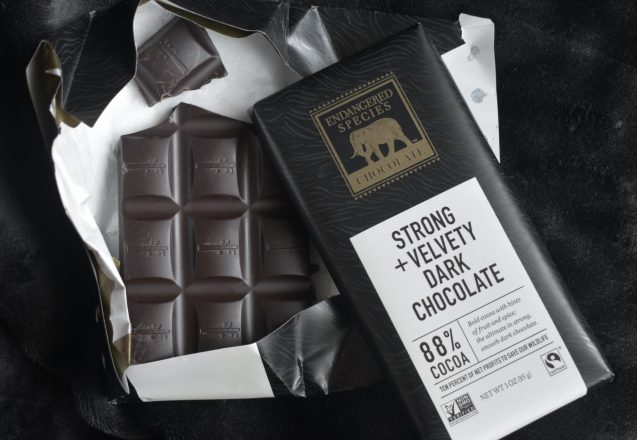
 Yes, food and snacks that taste good can also be good for you! Nothing proves this more than identifying the health benefits of dark chocolate. While apples and fresh fruit is sweet and delicious, sometimes you want something a little special. You don’t have to settle for less if you have some dark chocolate available. Start first with the type of chocolate you need. Only dark chocolate provides the real benefits. Milk chocolate not only contains a high amount sugar, it has a lot of milk added, too. Milk interferes with absorption of polyphenols that are in the cocoa bean. The fat profile of dark chocolate has a far better fat profile, too.
Yes, food and snacks that taste good can also be good for you! Nothing proves this more than identifying the health benefits of dark chocolate. While apples and fresh fruit is sweet and delicious, sometimes you want something a little special. You don’t have to settle for less if you have some dark chocolate available. Start first with the type of chocolate you need. Only dark chocolate provides the real benefits. Milk chocolate not only contains a high amount sugar, it has a lot of milk added, too. Milk interferes with absorption of polyphenols that are in the cocoa bean. The fat profile of dark chocolate has a far better fat profile, too.
 One of the newest miracle supplements being touted for health benefits are probiotics. While they do provide benefits for health, such as aid in stopping diarrhea, balancing friendly bacteria, aiding in mental health, improved heart health, boosting immunity and even aiding with allergies. There’s a dispute, however, whether probiotics will help you lose weight. While some say it definitely helps, other are just as emphatic that it doesn’t.
One of the newest miracle supplements being touted for health benefits are probiotics. While they do provide benefits for health, such as aid in stopping diarrhea, balancing friendly bacteria, aiding in mental health, improved heart health, boosting immunity and even aiding with allergies. There’s a dispute, however, whether probiotics will help you lose weight. While some say it definitely helps, other are just as emphatic that it doesn’t.
 At Iron Fit in San Antonio, Texas, we not only focus on getting healthier. The health of the body affects all parts of life. It even affects brain health. There are many ways low carb diets can boost brain health. Low carbohydrate diets have been used for thousands of years to prevent epileptic seizures. In fact, fasting was used in Biblical times. In fact, there’s reference in the Bible to fasting to eliminate the demons that caused seizures.
At Iron Fit in San Antonio, Texas, we not only focus on getting healthier. The health of the body affects all parts of life. It even affects brain health. There are many ways low carb diets can boost brain health. Low carbohydrate diets have been used for thousands of years to prevent epileptic seizures. In fact, fasting was used in Biblical times. In fact, there’s reference in the Bible to fasting to eliminate the demons that caused seizures.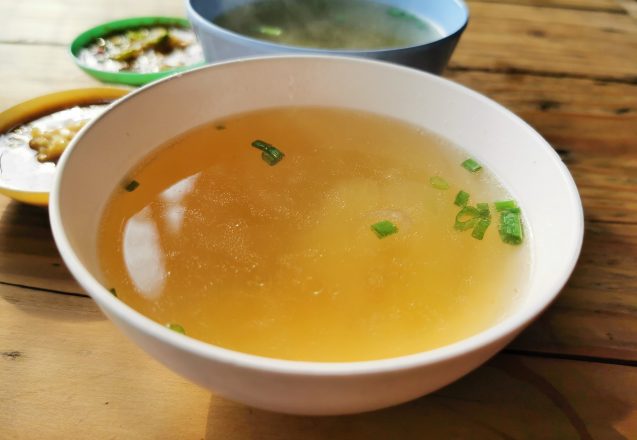
 The most frugal cooks often create bone broth from leftovers, just as those that create epicurean delights. Bone broth is made with leftover bones and connective tissue that are baked then simmered for hours. The stock is rich in nutrients and used for sauces, soup and even a healthy drink. Bones that are normally discarded, such as knuckles, hooves, beaks or fins are used. The bones or connective tissues of beef, such as pork, fish, bison, venison and poultry are used.
The most frugal cooks often create bone broth from leftovers, just as those that create epicurean delights. Bone broth is made with leftover bones and connective tissue that are baked then simmered for hours. The stock is rich in nutrients and used for sauces, soup and even a healthy drink. Bones that are normally discarded, such as knuckles, hooves, beaks or fins are used. The bones or connective tissues of beef, such as pork, fish, bison, venison and poultry are used.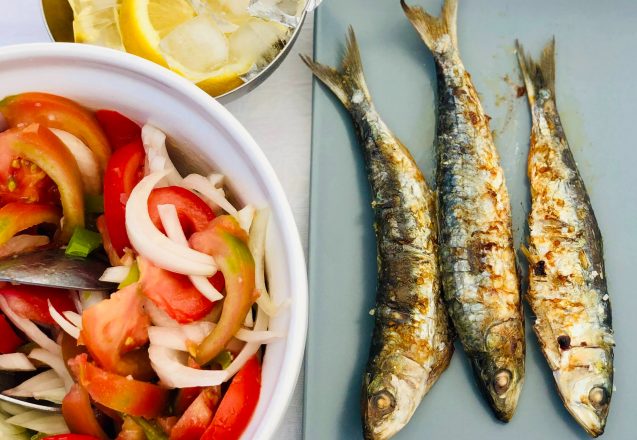
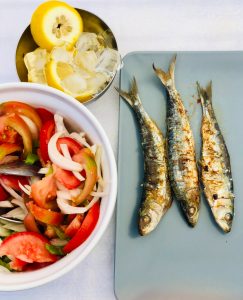 Your body is an amazing machine. It fuels itself in a number of ways. It draws in oxygen and eliminates carbon dioxide, changes food to fuel and changes sunlight to nutrients it needs. That’s right, the sun’s ultraviolet rays changes cholesterol into vitamin D. However, too much exposure to the sun can cause skin cancer, so an alternative to getting the vitamin D you need is to eat foods high in Vitamin D.
Your body is an amazing machine. It fuels itself in a number of ways. It draws in oxygen and eliminates carbon dioxide, changes food to fuel and changes sunlight to nutrients it needs. That’s right, the sun’s ultraviolet rays changes cholesterol into vitamin D. However, too much exposure to the sun can cause skin cancer, so an alternative to getting the vitamin D you need is to eat foods high in Vitamin D.
 We focus on exercise at Iron Fit in San Antonio, Texas, but also realize that what you eat makes a huge difference in your health, your weight loss and your overall fitness. That’s one reason I like to take time to provide nutritional information that you can use to improve weight loss and get into shape faster. One of the biggest offenders in many people’s diets is the sugar they consume. Not only will added sugar slow or reverse weight loss, it’s bad for you.
We focus on exercise at Iron Fit in San Antonio, Texas, but also realize that what you eat makes a huge difference in your health, your weight loss and your overall fitness. That’s one reason I like to take time to provide nutritional information that you can use to improve weight loss and get into shape faster. One of the biggest offenders in many people’s diets is the sugar they consume. Not only will added sugar slow or reverse weight loss, it’s bad for you.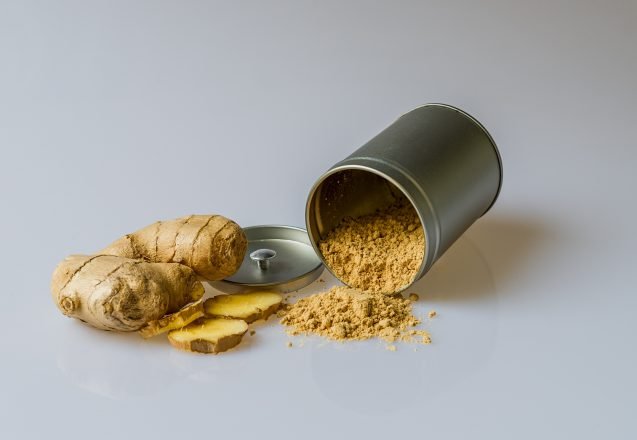
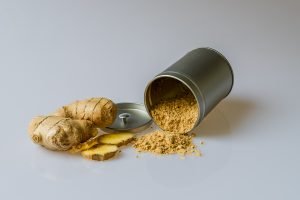 What you eat and how much you exercise, sleep or live a basically healthy lifestyle, has a big effect on your health if you’re diabetic. It’s true for both type 1 and type 2 diabetics. However, that’s where much of the health information ends. Those with type 1 diabetes fail to produce insulin, while people with type 2, start by not using insulin effectively and eventually don’t make enough. That’s why diet and exercise can often help people with type 2 reverse the disease, but not cure it. This discussion of the benefits of ginger for diabetes, focuses primarily on type 2 diabetics.
What you eat and how much you exercise, sleep or live a basically healthy lifestyle, has a big effect on your health if you’re diabetic. It’s true for both type 1 and type 2 diabetics. However, that’s where much of the health information ends. Those with type 1 diabetes fail to produce insulin, while people with type 2, start by not using insulin effectively and eventually don’t make enough. That’s why diet and exercise can often help people with type 2 reverse the disease, but not cure it. This discussion of the benefits of ginger for diabetes, focuses primarily on type 2 diabetics.
 Most people barely find time to do a daily exercise routine, let alone workout twice a day. However, there are those who seem to be overachievers and reasons to increase your workout. For most people, it’s not necessary, unless you break your exercise sessions up to smaller amounts of time. For instance, instead of a thirty-minute workout, you have two fifteen-minute workouts or three ten-minute workouts. Studies show that as long as the workout is at least ten minutes, breaking a workout into several sessions provides the same benefits.
Most people barely find time to do a daily exercise routine, let alone workout twice a day. However, there are those who seem to be overachievers and reasons to increase your workout. For most people, it’s not necessary, unless you break your exercise sessions up to smaller amounts of time. For instance, instead of a thirty-minute workout, you have two fifteen-minute workouts or three ten-minute workouts. Studies show that as long as the workout is at least ten minutes, breaking a workout into several sessions provides the same benefits.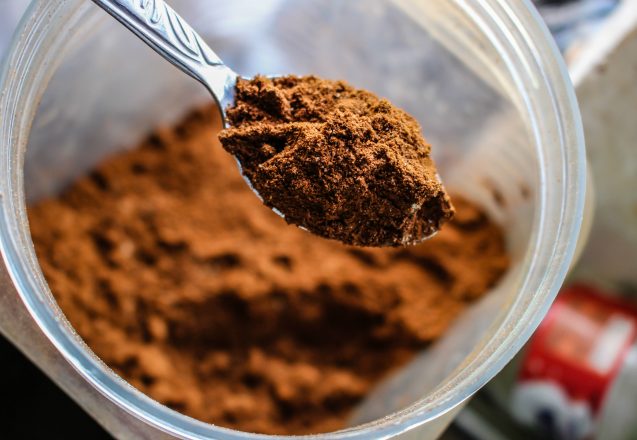
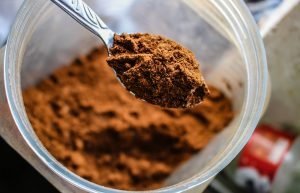 At Iron Fit in San Antonio, Texas, we work on getting you fit, losing weight and building muscles. People often think immediately of taking protein supplements when they want to build muscle tissue, but is that always the right thing to do? If you go to the grocery, you’ll find stacks of protein supplements on the shelves near the vitamins. The same is true at drug stores. I don’t even have to not how many protein supplements in stores that strictly sell supplements and health food. There are aisles designated to them. Should you take them? Are they good for you? Do you need them? One group may. That group is senior citizens that don’t process protein as efficiently. How about the rest and how much do they need?
At Iron Fit in San Antonio, Texas, we work on getting you fit, losing weight and building muscles. People often think immediately of taking protein supplements when they want to build muscle tissue, but is that always the right thing to do? If you go to the grocery, you’ll find stacks of protein supplements on the shelves near the vitamins. The same is true at drug stores. I don’t even have to not how many protein supplements in stores that strictly sell supplements and health food. There are aisles designated to them. Should you take them? Are they good for you? Do you need them? One group may. That group is senior citizens that don’t process protein as efficiently. How about the rest and how much do they need?